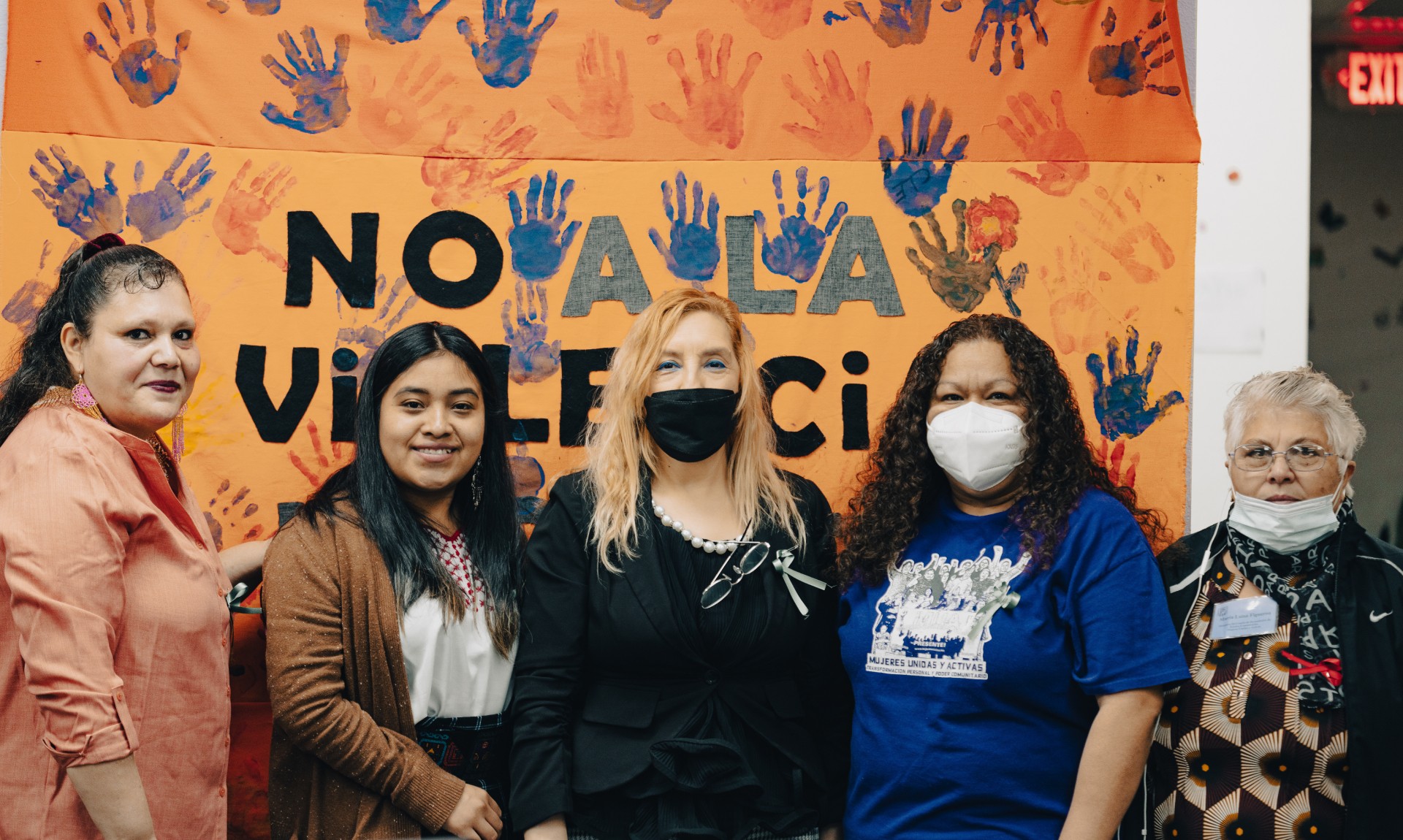In the United States, immigrants often work strenuous and stressful jobs in the food industry, as day laborers, in construction, or in agriculture. Many more work as long-term caretakers or domestic workers; especially immigrant women. And while elder caregiving is one of the most overlooked issues facing our nation, an entire demographic of mostly immigrant women upholds this industry – but the country does not extend the same courtesy to them.
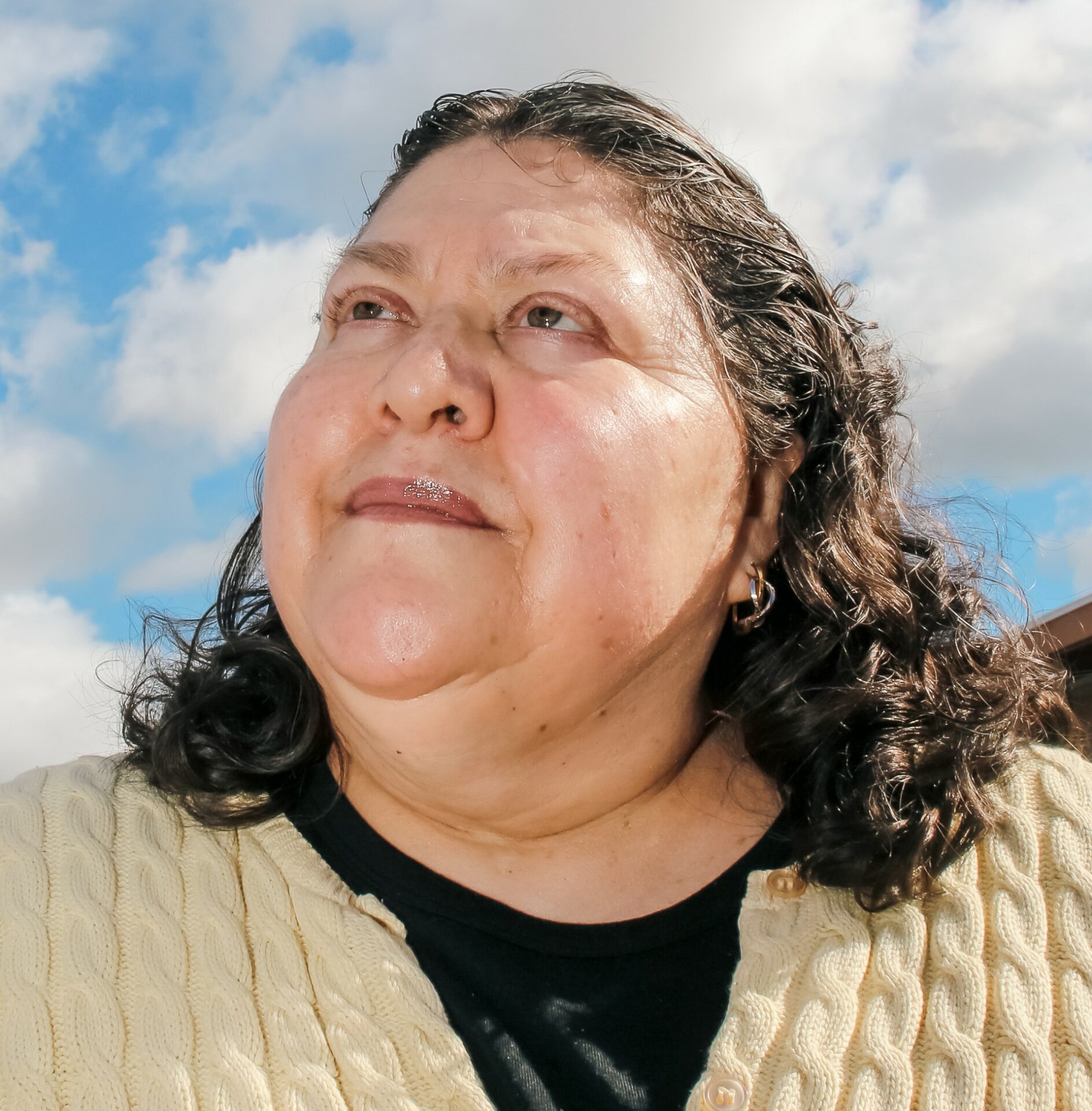
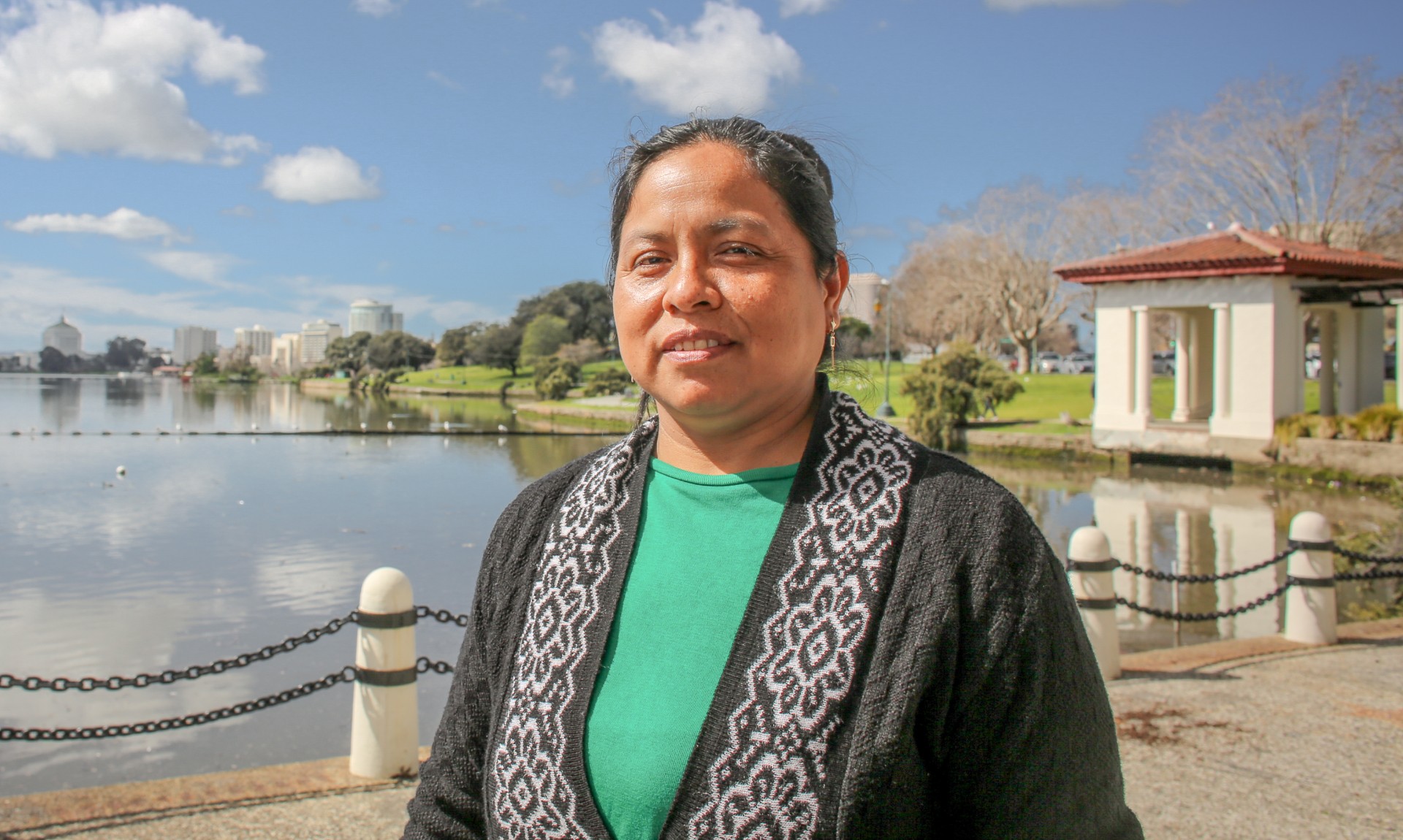
Mujeres Unidas y Activas (MUA), a well-known Bay Area organization in the national domestic worker movement and Metta Fund grantee, is seeking to change this. MUA’s efforts and initiatives, created by and for Latinx women and bolstered by a powerful cadre of programs that tackle immigration reform, women and workers’ rights, pursues social and economic justice for their Latinx members at home and in the world. MUA, which translates roughly to “unified and engaged women,” believes that women are stronger together. Through a demonstrated model of leadership development, MUA facilitates the metamorphosis of its members into agents of change.
MUA’s Executive director, Juana Flores, spoke with Metta Fund about why they do the work they do, what makes their organization stand apart, and how funding from Metta Fund is helping more and more immigrant women to become their own champions in their daily lives and in the fight for social and economic justice.
Ms. Flores, who joined MUA as a member in the early 1990s and became co-director in the early 2000s, is one of thousands of living testaments to the strength of MUA’s programs. She arrived in San Francisco from Mexico and needed help navigating an unhealthy relationship. At the suggestion of a friend, she joined MUA. From the first meeting, she saw MUA’s potential for transformation.
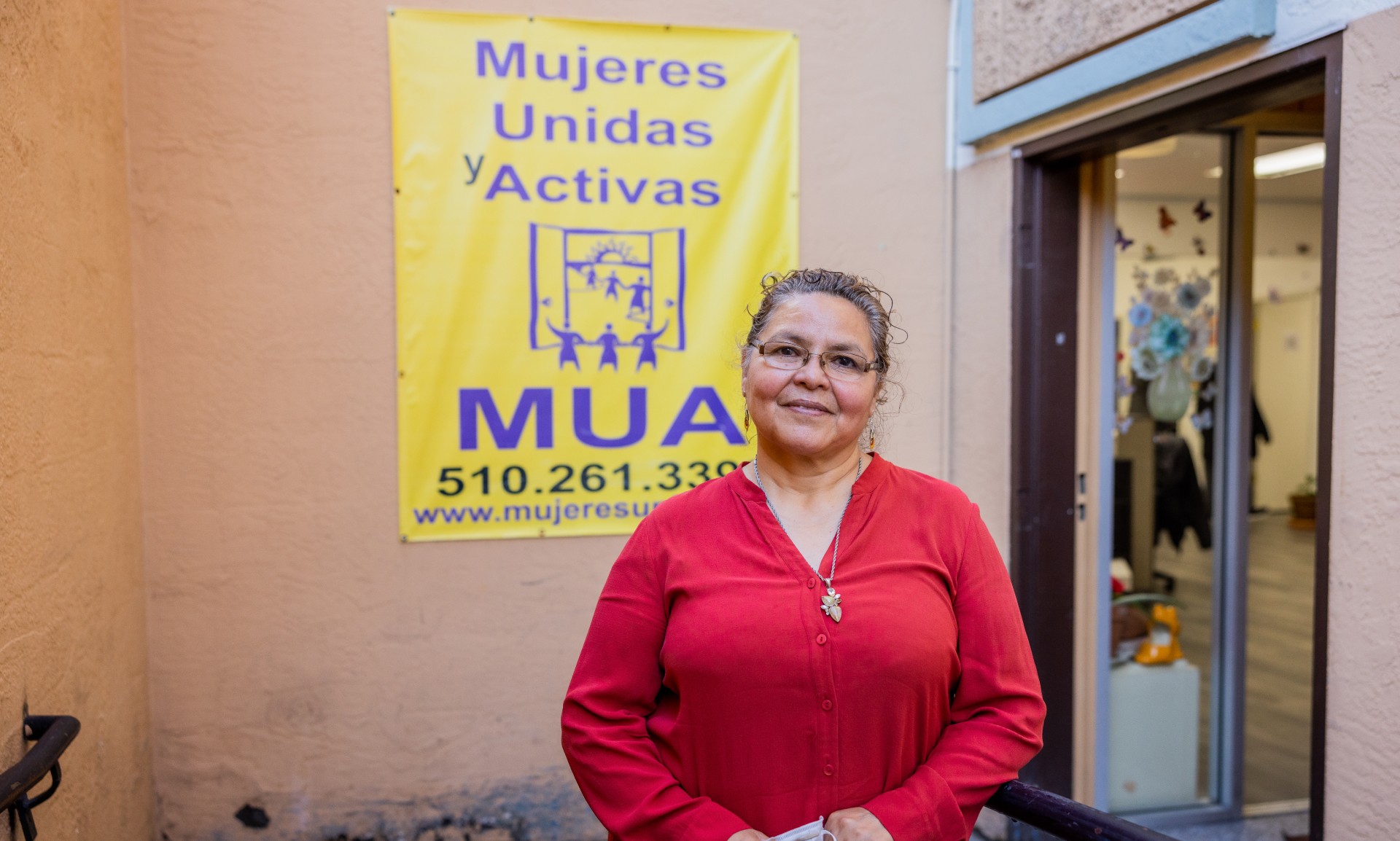
Self-actualization leads to strength in every other facet of life. Ms. Flores believes that the strength of MUA lies within each of its members, and that its collective strength is harnessed for good in the world. What makes this organization stand out from others is not what transpires, but how.
“The beauty of this organization and of this mission is not that each woman arrives at their first meeting and then that’s it. After we cover the basics, including the basics about her rights as a worker and as an immigrant in this country, we see her transform,” Ms. Flores says. “The real beauty is what happens after our workshops about self-esteem, after she learns what she is capable of, and from there, to see the transformation that occurs in these women, to see how their life changes and how they reach self-actualization. That doesn’t have a price, and that’s not something you can quantify.”
According to MUA’s mission statement, they provide “peer-led direct services and leadership development opportunities” to Latinx immigrants to “help them overcome trauma, navigate systems to access services they need to thrive, and become active leaders towards changing the policies that negatively impact them.”
“The beauty of this organization and of this mission is not that each woman arrives at their first meeting and then that’s it. After we cover the basics, including the basics about her rights as a worker and as an immigrant in this country, we see her transform” – MUA’s Executive director, Juana Flores
Eighty-two percent of members identify as domestic workers. Many have similar stories of fleeing an abusive or oppressive past only to arrive in the Bay Area unaware of their rights as domestic workers, immigrants, or even as women, both inside and outside of their homes. After members graduate from programs that touch on relationship building, parenting, and immigrant and domestic worker rights, they feel inspired and compelled to tell their stories in the hopes of seeing change in their communities and beyond.
One current MUA member, Martina, says that MUA has contributed to a sense of self and even her parenting. “I was suffering from domestic violence when I first came and that was 30 years ago,” she says. “I learned how to stand up for myself. My children were very young when I first joined and now that they’re all grown up. It really helped me with my youngest child…and it taught me to be patient and how to support my child even more, no matter how the world looks at them, she says.”
For many Latinx women, especially those from abusive families or relationships, speaking out is synonymous with risk; further testament to the safe yet powerful space MUA has created for its thousands of members.
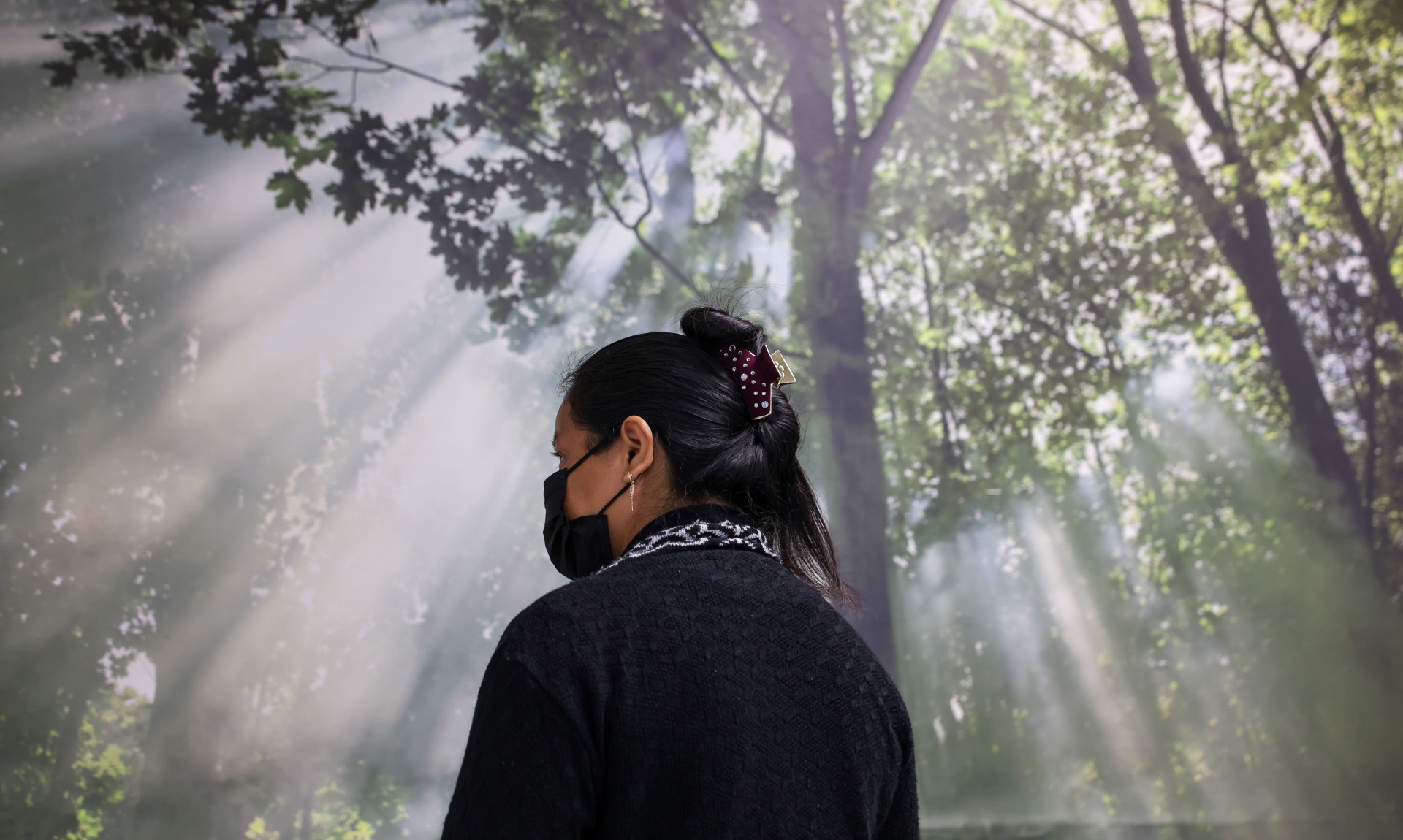
MUA’s work is atypical in that much of what they do cannot be measured in a traditional sense. Yet centralizing its members’ stories as a “force for moving the hearts of the public and decision-makers,” is MUA’s fundamental strength as an organization.
Part of their programming includes intensive leadership training for participants to learn about campaign advocacy skills, including how to tell their own stories that could sway those in the capital. Current legislative “wins” include the California Domestic Worker Health and Safety Act and the SF Domestic Worker Paid Sick Leave Ordinance, both of which MUA is working hard to now see implemented.
“These wins at a state level and seeing the policy wins we have,” says Ms. Flores, means “we have turned from the personal to the political. We want to see these things implemented. And when women see these changes at a state level, they feel super hopeful and impactful and happy. It is inspiring beyond measure to see the kids marching with their mothers.“
We want to see these things implemented. And when women see these changes at a state level, they feel super hopeful and impactful and happy. It is inspiring beyond measure to see the kids marching with their mothers.
– Juana Flores
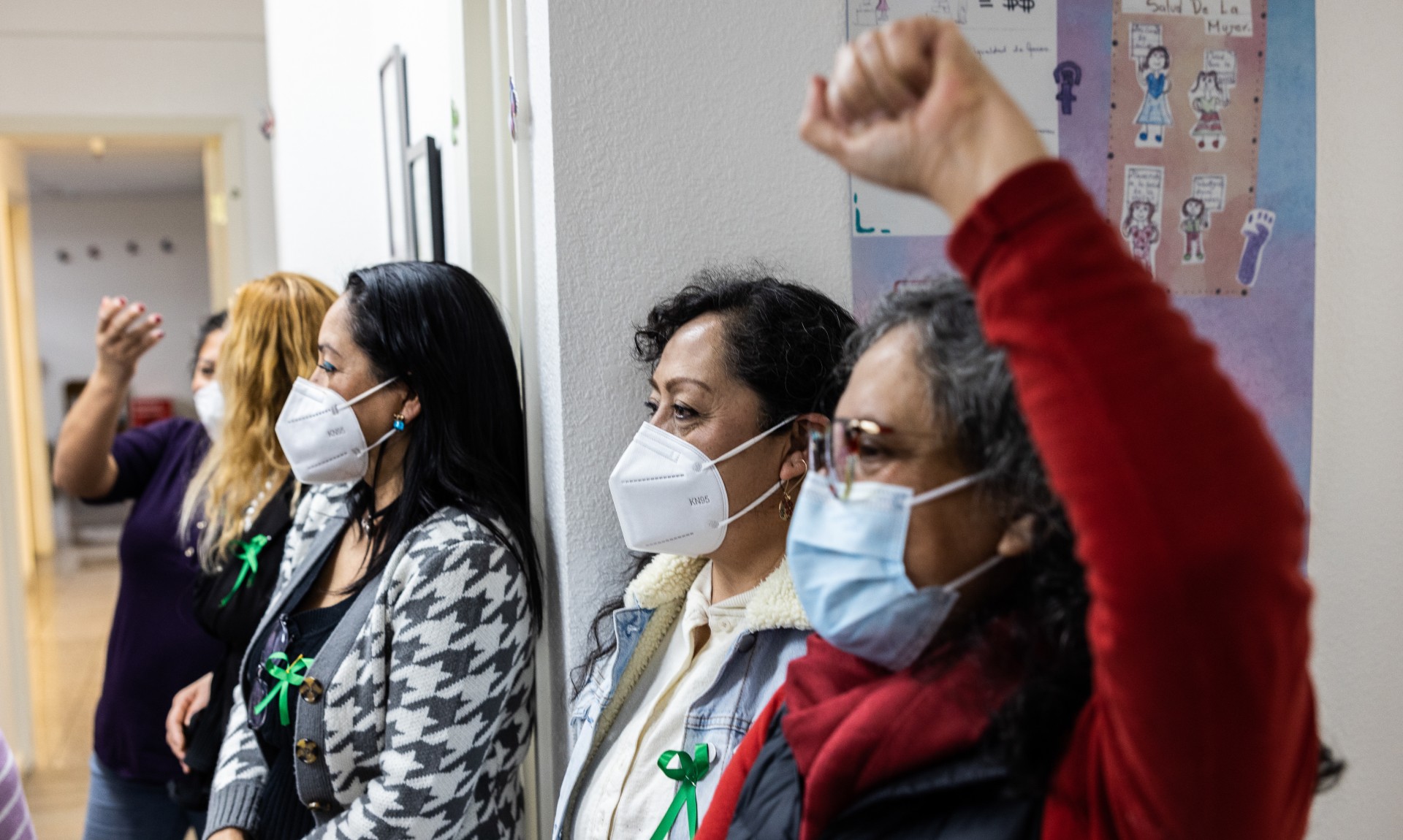
Championing cross-generational unity and inspiring future generations are goals integral to MUA’s successes and representative of many Latinx cultures, where several generations may live under one roof. Caretaking, while unpaid in the case of family members, is oftentimes one of the most readily available sources of paid work for immigrant women. And, in fact, policy leaders have long noted that the future of the long-term care industry is dependent on immigrants.
But while the population of adults turning 65 grows by 10,000 everyday in the U.S., the caregiving industry does not grow to meet this need, and the United States has been slow in its efforts to strategize around meeting this inevitable demand. Despite the direct care workforce comprising about 4.5 million workers, caregiving continues to be some of the lowest-paid and most exploited work.
According to a 2020 survey of domestic workers in San Francisco, of the approximately 10,000 domestic workers in San Francisco, “close to half” are employed as home care attendants, 88.4% are female identified, and 68.8% are San Francisco residents, and the median age for domestic workers in San Francisco is 50, and one in four are over 60 years old.
The women who work as caretakers will also, inevitably, join the ranks of elders. But who will take care of our caretakers?
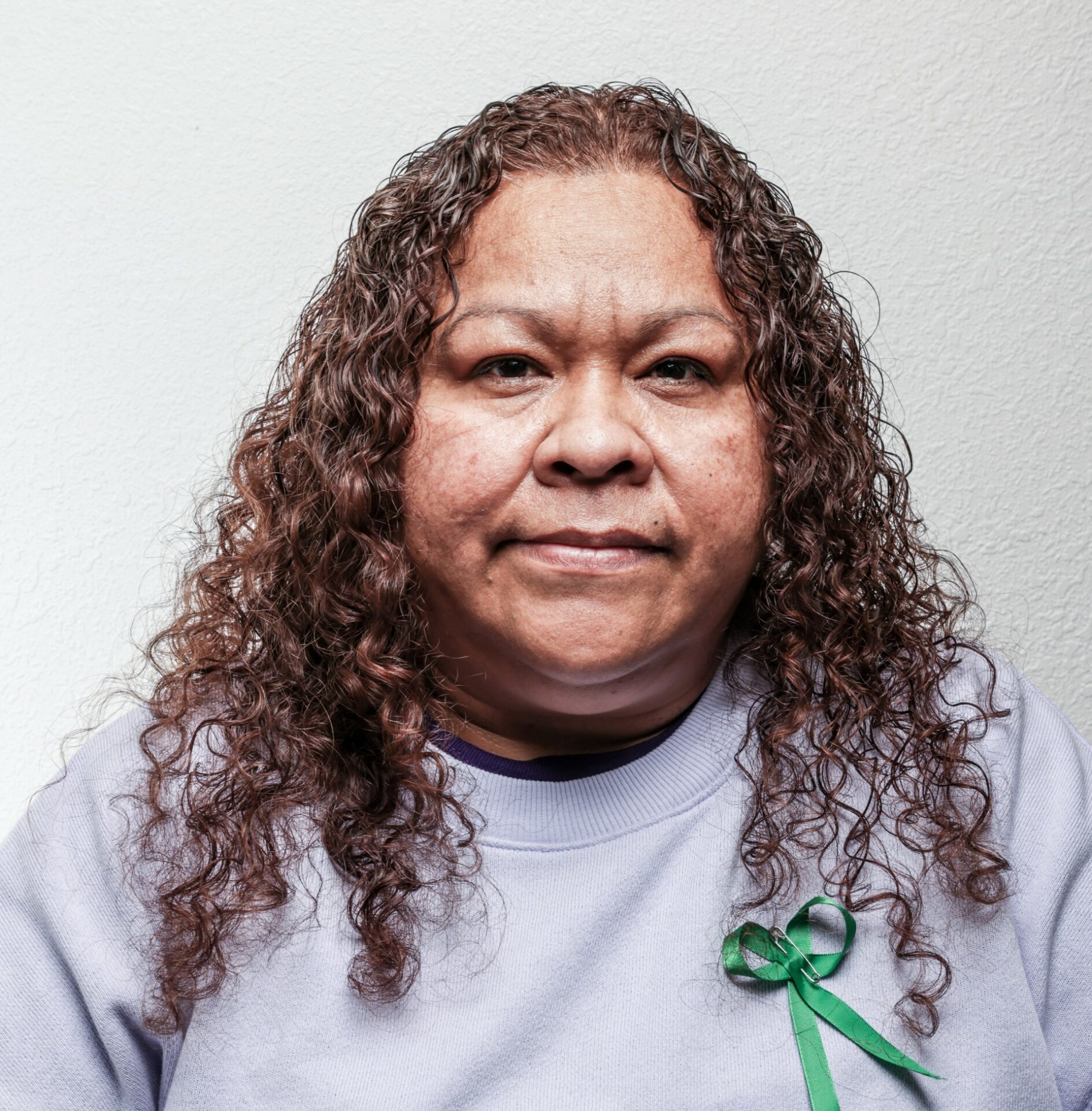
Ms. Flores acknowledges that if you are a bit older, caring for another person is more complicated. “It’s hard work,” she says. “For a woman between 50-60 years old, we believe that she should be taken care of instead of working,” especially without any guarantees of social security when she hits 65. “For this reason, we fight for the rights of women at all ages. After working as caretakers for so many years, women deserve access to social security,” medical care, access to healthy food, “so they can stay healthy and supported in their later years.”
“We want to deepen the work we’re doing and see our model serve women across the country. I want to see other women-and-immigrant-led organizations driving change, not receiving from the top down, but a surge from the ground, from here up, acting as each other’s allies” – Juana Flores
“We don’t want these women to come up short after a lifetime of caring for others,” she says.
Yet according to the same 2020 survey, the median annual income of San Francisco domestic workers is only $19,000—lower than almost all other low-wage occupations, and much less than the minimum wage.
MUA’s vision is for caregiving “to become a valued, respected source of employment, offering a living wage and stability to immigrant women, so they can afford to be adequately housed, have health care insurance, and time to care for themselves and their families” at all ages.
And as MUA evolves, so do its members. What does Ms. Flores want for MUA in twenty years? Perhaps the same want she has for herself and MUA’s members.
“We are growing rapidly, and because of this our vision has had to grow,” she says. “We want to deepen the work we’re doing and see our model serve women across the country. I want to see other women-and-immigrant-led organizations driving change, not receiving from the top down, but a surge from the ground, from here up, acting as each other’s allies” in these efforts. In her vision for MUA’s future, and the future of domestic workers and immigrant women: “we are the protagonists,” she says.
Story by Sahara Marina Borja; Photography by Jean Melesaine.
En Estados Unidos los inmigrantes con frecuencia trabajan en empleos exigentes en la industria de la comida, o como trabajadores de a diario, en la construcción y la agricultura. Muchos otros, en especial mujeres inmigrantes, trabajan como cuidadoras a largo plazo y empleadas domésticas. Mientras que el cuidado de ancianos es uno de los aspectos más ignorados en nuestra sociedad, un número enorme de mujeres inmigrantes mantiene esta industria a flote – pero el gobierno no les extiende la misma cortesía.


Mujeres Unidas y Activas (MUA), conocida organización del Área de la Bahía en el movimiento de trabajadores domésticos y recipiente de una beca Metta Fund, está intentando cambiar este desequilibrio. El esfuerzo de MUA y sus iniciativas creada y organizada por y para mujeres asociadas a Latinx está siendo apoyado por un grupo de programas que pugnan por un cambio en las leyes de inmigración, los derechos de hombres y mujeres trabajadores, persigue justicia social y económica para los miembros de Latinx tanto a nivel doméstico como mundial. MUA, simplemente traducido significa “mujeres unidas asociadas,” cree firmemente que las mujeres organizadas son más fuertes. Es a partir de un modelo demostrado de desarrollo en liderazgo como MUA propicia la metamorfosis de sus miembros asociados en agentes de cambio.
Juana Flores, Directora Ejecutiva de MUA, discutió con Metta Fund las razones por las cuales ellos trabajan en estos temas, qué hace que esta organización sobresalga sobre las demás y cómo el apoyo de Metta Fund ayuda más y más el trabajo que ellas hacen, impulsa el desarrollo de la organización y cómo los fondos recibidos de Metta Fund sirven cada vez más para que las mujeres inmigrantes obtengan logros en sus vidas y en la lucha por obtener justicia social y económica.

La señora Flores, quien ha sido miembro de MUA desde principios de 1990 y ascendió a su dirección a principios del 2000, es uno de tantos logros vivos que hablan de la fortaleza de los programas de MUA. Ella al llegar a San Francisco desde México estaba necesitada de apoyo en cómo lidiar con una relación desigual. Un conocido le mencionó asociarse a MUA. A partir de su primera visita ella pudo ver sus posibilidades de cambio.
La auto-realización lleva a fortalecer muchas otras facetas en la vida personal. La señora Flores cree firmemente que la fortaleza de MUA reside en cada uno de sus miembros y que su fuerza como colectivo puede ser aprovechada para bien en este mundo. Lo que distingue a este organización de otras similares no es lo que se lleva a cabo, sino cómo.
¨Lo bonito de esta organización y su misión no es que cada mujer llega a su primera reunión y eso es todo. Luego de cubrir las bases, incluidos sus derechos como trabajadoras y como inmigrantes en este país, vemos cómo se transforman,” dice la señora Flores. “Es bonito ver los cambios que operan después de nuestros talleres sobre la auto-estima, luego que ellas descubren de lo que pueden ser capaces y cómo ellas logran un estado de auto-realización. Esto no tiene precio y es algo cuyo valor no puede ser cuantificado.”
De acuerdo con lo expresado por MUA, ellos proveen “servicios directos dirigidos por sus miembros para establecer liderazgo en el desarrollo de oportunidades, para ayudar el alivio a traumas, descubrir acceso al sistema de servicios que ellos necesitan para su superación y para convertirse en líderes activos con miras a cambiar algunas políticas que les pueden impactar de manera negativa.”

El ochenta y dos por ciento de sus miembros se identifican como trabajadoras domésticas. Muchas de ellas tienen historias similares relacionadas con el haber huido de relaciones abusivas o un pasado opresivo y llegan al Área de la Bahía sin tener conocimiento de sus derechos como trabajadoras domésticas, inmigrantes o simplemente mujeres, bien sea dentro o fuera de sus hogares.
Una vez que nuestros miembros se gradúan en programas que tienen que ver con la construcción de relaciones, ser padres, los derechos de inmigrantes y trabajadores domésticos, se sienten inspirados y compelidos a contar sus historias personales con la esperanza de ser partícipes del cambio en sus comunidades y más allá de ellas.
Martina, miembro de MUA, dice que MUA ha contribuido a su ser personal y a su sentido de ser madre. “Yo sufría la violencia doméstica hace treinta años cuando llegué a este país. Aquí aprendí a resistir por mi propia cuenta. Mis hijos eran muy pequeños cuando ingresé por primera vez y ahora ya están crecidos. MUA me ayudó mucho, sobre todo con mi más pequeño… y eso me enseñó a ser paciente y a cómo apoyar mis hijos aún más, sin importar cómo el mundo los mira”, dice.
Para muchas mujeres Latinx, especialmente aquellas en relaciones personales o familiares abusivas, hablar de ello públicamente es sinónimo de riesgo. Esto último es un testamento del espacio seguro y protector que MUA ha creado para miles de sus miembros y asociados.
El trabajo realizado por MUA no es típico en cuanto que ello no puede ser medido en términos tradicionales. Sin embargo, centrar las historias personales de sus miembros, como” una fuerza que movilice los corazones del público y aquellos que toman decisiones,” es fundamental como fuente de poder en la organización.

Parte de sus programas incluye entrenamiento a quienes participan en el estudio intensivo con miras a desarrollar trabajo basado en técnicas de desarrollo de talento, lo que incluye cómo contar sus propias historias, algo que pudiera convencer a los políticos en la capital. Entre los varios “logros” legislativos recientes se hallan el Acta de Seguridad y Salud Pública de Trabajo Doméstico en California y La Ordenanza de Trabajo Remunerado en Ausencia de Trabajo Doméstico, ambos proyectos los cuales MUA está trabajando muy seriamente para verlos oficialmente implementados.
“Estos ‘logros’ a nivel estatal y luego de ver varios logros en políticas de trabajo, significan que hemos logrado transformar lo personal en un hecho político,” dice la señora Flores, “Queremos ver estos logros implementados públicamente. Y cuando las mujeres vean los cambios a nivel estatal se van a sentir esperanzadas y felices del impacto logrado. Es muy esperanzador ver a los niños marchando al lado de sus madres en busca del cambio.”
Apoyar la unidad generacional e inspirar futuras generaciones son proyectos integrales al éxito y representativo de MUA y varias otras culturas Latinx, algunas de las cuales viven bajo un mismo techo.
El Cuidado Personal, muchas veces no pago entre miembros de la misma familia, es uno de los recursos de más fácil acceso de trabajo remunerado para mujeres inmigrantes. De hecho, hay líderes políticos que hace mucho tiempo han notado que el futuro de la industria del cuidado personal es, a largo plazo una industria dependiente en el trabajo de inmigrantes.
No obstante, mientras la población de adultos que llegan a los 65 años de edad crece a 10.000 cada día en Estados Unidos, la industria del cuidado de ellos no crece para suplir este requerimiento y los Estados Unidos han sido laxos en su esfuerzo de crear una estrategia para suplir la inevitable exigencia de servicio. Pese a que la fuerza directa de trabajo alcanza 4.5 millones de trabajadores, el servicio de prestación de servicio y cuidado de los ancianos continúa siendo una de las más explotadas y de más baja remuneración.
De acuerdo a una encuesta sobre el trabajo doméstico en el año 2020, en San Francisco, de aproximadamente 10.000 de estos trabajadores, “cerca de la mitad” trabajan como asistentes internos de cuidado, 88.4% son mujeres y el 68.8% son residentes en San Francisco. La edad promedio de trabajadores domésticos en San Francisco es 50 años y uno de cada cuatro son mayores de 60 años.
Las mujeres que trabajan como proveedoras de cuidado también habrán de, inevitablemente, aumentar el número de personas de esa edad.
Pero, ¿quién habrá de cuidar a nuestros cuidadores?

La señora Flores reconoce que si se es un poco viejo, cuidar a otra persona de edad se hace más complicado. “Es un trabajo duro,” dice. “Una mujer de entre 50 y 60 años, creemos que ella debería tener quien la cuidara en vez de estar trabajando cuidando a otros,” particularmente si no se tiene ninguna garantía de seguridad social cuando cumpla los 65 años.
“Esta es la razón por la que luchamos por los derechos de las mujeres de todas las edades. Luego de trabajar como cuidadoras durante tantos años, las mujeres merecen acceso a la seguridad social,” servicio médico, acceso a comida saludable, “De esta manera ellas pueden permanecer bien de salud y apoyadas en sus últimos años. No queremos que estas mujeres sufran de escasez luego de una vida cuidando a otros.”
Sin embargo y de acuerdo al índice estadístico de 2020, el ingreso medio anual de trabajadores domésticos en San Francisco de tan sólo $19.000 – más bajo que casi todas las otras ocupaciones de bajos ingresos y mucho menos que el salario mínimo: La visión de MUA propugna para que dar cuidado a otros, “Se convierta en una fuente de empleo valorada y respetada. Que ofrezca un salario de vida y estabilidad a mujeres inmigrantes, así que éstas puedan cotizar vivienda adecuada, tengan seguro de salud y puedan disfrutar tiempo para ellas y sus familiares,” de todas las edades.
A medida que MUA evoluciona, también lo hacen sus miembros. ¿Que desea la señora Flores al cabo de veinte años?
Quizás lo que ella desea para sí misma y los asociados de MUA.
“Estamos creciendo rápidamente y debido a ello nuestra visión debe de crecer,” dice. “Queremos profundizar en el trabajo que estamos haciendo y ver que nuestro modelo sirva a muchas otras mujeres en este país. Quisiera ver otros grupos organizados por mujeres e inmigrantes, convertidos en organizaciones generando cambios, no como recipientes de arriba hacia abajo, pero verlos surgir de abajo hacia arriba, propiciando cambios y actuando como aliados en estos esfuerzos.”
“Somos los protagonistas,” dice ella, acerca de su visión para el futuro de MUA y el futuro de trabajadores domésticos y las mujeres inmigrantes.
Cuentos: Sahara Marina Borja; Fotografía: Jean Melesaine.
